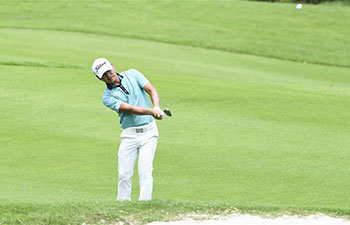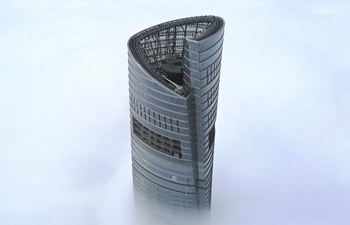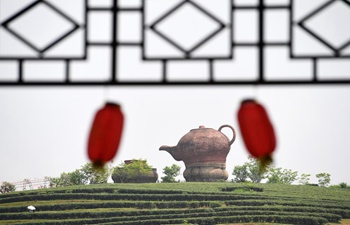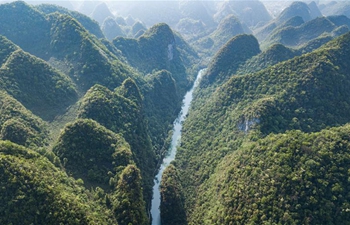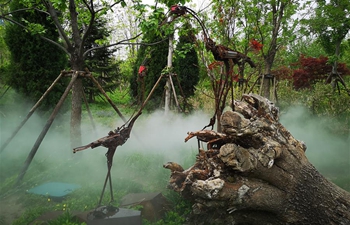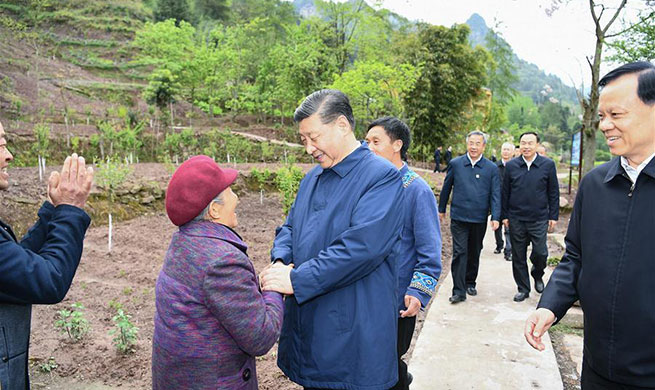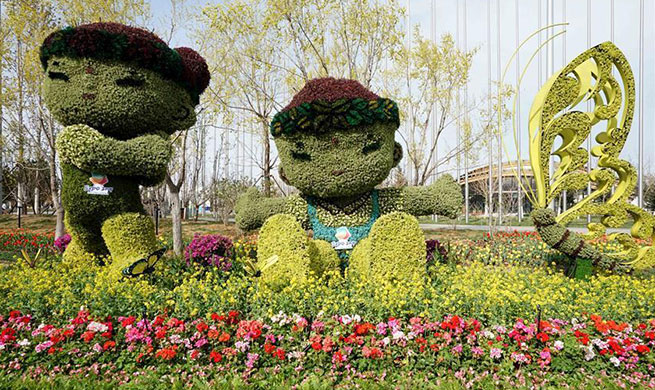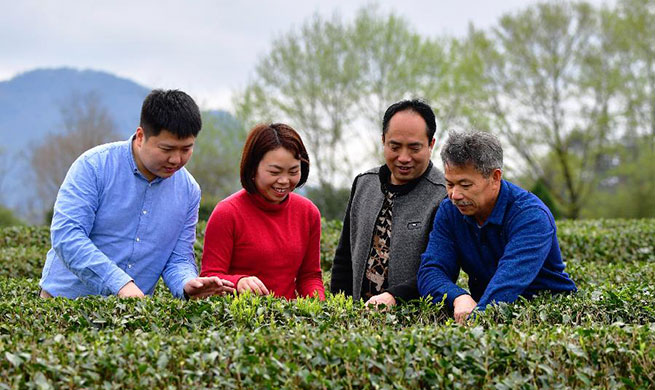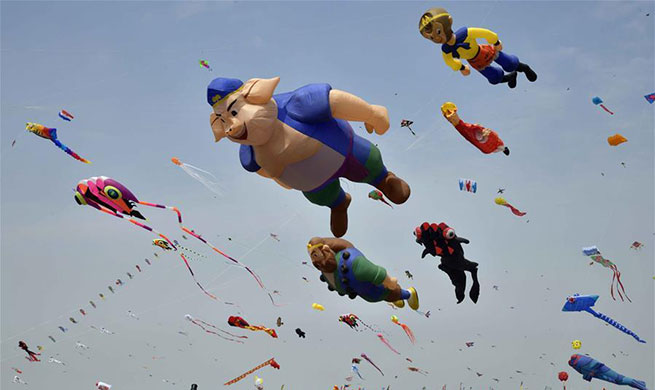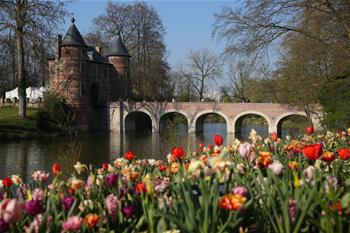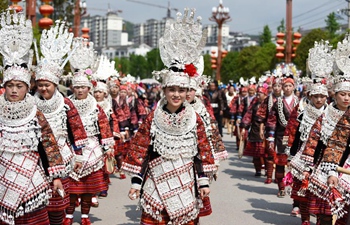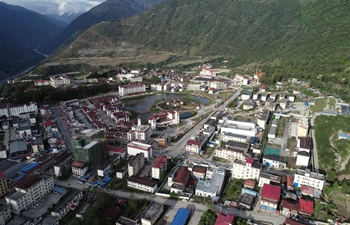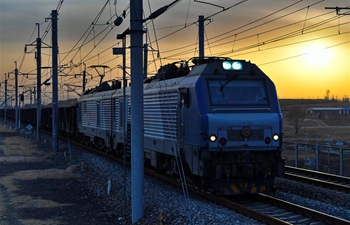HAVANA, April 19 (Xinhua) -- Exactly one year ago, millions around the world watched as former Cuban President Raul Castro raised the hand of new leader Miguel Diaz-Canel, a moment that sealed the historic generational transition in the island nation.
Twelve months after his election by the country's National Assembly, Diaz-Canel has set a new style of government amid a complex economic situation due to tougher U.S. sanctions, financial restrictions and the ongoing crisis in Venezuela, the Caribbean nation's ally.
It has been usual to see him inspect state institutions, and appear at regular government meetings on key sectors of Cuba's economy.
Many compare his style to late leader, Fidel Castro, who worked endless hours and had constant interaction with the people.
"He's a very active president who travels all over the country, goes to remote areas with his ministers and talks about what's really happening in Cuba whether on national television or with the people. What he's doing now wasn't done before," Sergio Rodriguez, a Havana state worker, told Xinhua.
Of a calm and confident demeanor, an elegant presence, sharp looks and a reserved personality, Diaz-Canel has been constantly busy working on domestic issues and developing an intense foreign policy agenda.
He has met with several world leaders in Cuba and abroad, intensifying cooperation with countries like Venezuela, China, Russia, Vietnam and Spain, while ties with the United States have seriously deteriorated.
"There's a tense relation with the United States which has applied new measures to harden the economic blockade and trade with our country," said Luis Alberto Ruiz, a Cuban senior citizen.
Increasing economic efficiency has been his priority in a tense scenario where oil shipments from Venezuela have substantially decreased and exports haven't reached their projected volumes.
"Diaz-Canel's main challenge is to straighten out the economy for Cubans to have better salaries and reduce financial problems," Yariel Lugo, a Cuban private worker, told Xinhua.
However, the nation's cash crunch has led to an annual debt of 1.5 billion U.S. dollars, according to official figures, which will likely affect Cuba's economic performance this year and the projected gross domestic product growth of 1.5 percent.
At last week's National Assembly session, Economy Minister Alejandro Gil said the country is still heavily dependent on imports of food and oil which are expected to reach about 5 billion dollars in 2019.
Shortages of certain goods like eggs, chicken, powdered milk, meat, flour and cooking oil have reminded Cubans of the "Special Period" in the 1990s following the collapse of the former Soviet Union.
"This harsh moment demands we set clearly defined priorities in order not to return to the worst moments of the special period," said Diaz-Canel last week at a special parliament session.
Cubans are confident that the new and younger leader can set the economy straight and move forward despite troubles.
Diaz-Canel faces several challenges ahead in economic matters: the urgent need for a salary reform, ending the double currency system, and a law on small and medium-size private companies, among others.
One of his most successful policies has been to substantially increase Internet access in the nation with widespread mobile broadband service.
He is also the first Cuban leader to open an account on Twitter and other social networks and has pushed forward e-government and commerce to establish direct contact with the people.
"He's had a positive communication strategy ... I think it's good that he opened a Twitter account as people can have direct interaction with him," Saily Moreno, a 19-year-old journalism student, said.
In the coming years, said Diaz-Canel at the parliament session, his administration will focus on improving the economy and national defense due to Washington's constant threats against the Cuban revolution.
Key areas like tourism, biotechnology, medical services abroad, renewable energies, food production and infrastructure will have a major role in the government's efforts to achieve better results in the future.
